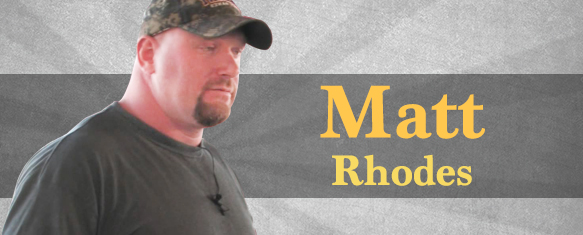
I am a disciplinarian. I believe that attention to details is the number one reason a good team can become a great team. Obviously, you have to have some talent, but it's not always essential.
We started our Winter Training five weeks ago. This consists of three days in the weight room and two days on the field running drills. But, it's not just lifting and running. It's the time when the identity of a team is developed. Just because you were good/bad last year doesn't mean it has to be more of the same this season.
I spend a lot of time reading about how the military, specifically the Marines, develop leadership qualities. I'm lucky enough to know some warriors who have served in special operations units and I pick their brains. Two guys I speak with often are LTC. Ryan Whittemore, US Army Ranger, 10th Special Forces Group and CPT. Chase Wheeler, USMC (retired) MARSOC.
Guys in these units are held accountable for EVERYTHING. After all, it's life or death. Obviously, football (sport) isn't quite that serious, but there's no reason I can't use those ideas to develop a team.
We already have a "strike policy" in place. Basically, if a player does something wrong (late or miss class, treatments, meetings, etc...) they get a morning run with me. It's never anything that will make them better. It's always rolling, crab walks, bear crawls or something to make them hate life. After 3 strikes their position group runs with them, 5 strikes their side of the ball runs, 6 strikes the entire team runs and 7... well 7 and they're out.
This only addresses one portion of the development of a team. When we condition we have drills where they need to touch cones, run around cones, run around cones on the proper side, run through lines, etc... These are just details, but details that matter and create habits.
We have started having my free help (interns) chart infractions. If a kid doesn't finish a drill full speed, check mark. The entire drill is repeated by every member. Don't touch a cone, don't touch a line, knock over a cone - repeat the drill as a group. These are habits we're trying to create. You don't do things wrong all the time and magically be right at practice. It's an all day affair. Do right all day and you'll probably do right at practice and you'll have a better chance to do right in 11-12 games a year.
Through my experiences as an athlete, coach and in talking with my military assets, the best teams police themselves. The players take care of a lot of the little BS and the coaches are not involved. When it comes from a peer it means a lot more than constantly being from a coach.
I have recently adopted a new take on my job. Yeah, get them stronger, keep them healthy and all that crap. But, I'm charged with developing the mentality of the team. I know what they need to do, but saying it doesn't cut it. Yelling it makes it less effective. So, I've stolen the idea and it goes like this.
"It's your team, but I run it."
There are rules to follow. They are clear. Break a rule and EVERYONE pays for it. So, when an athlete breaks a rule and they are caught they will get their strike and meet me at 6am on Mondays for some useless physical activity. When they show up to lift they will find their name written on the Board of Shame with the infraction. Now, EVERYONE knows who did what. As an extra cherry on top the entire team will be punished for that one players mistake.
Each infraction carries a specific penalty/punishment.
- Late to lift or treatment - 10 Up Downs for every minute late
- Missed lift or treatment - 100 yard crab crawl
- Improperly dressed - 5 minute plank
- Missed reps during lift - Lower body - 2 minute split squat hold each leg/Upper - 50 push-ups
- Late to study hall, meetings, class - 100 yard inch worm
It's very important for a team to be held accountable for the actions of one player. After all, you win together and you lose together. Every thing we do is together, good or bad.
What will happen is leaders will start to emerge. Players will take control of their team and discipline and attention to details will improve.









3 Comments